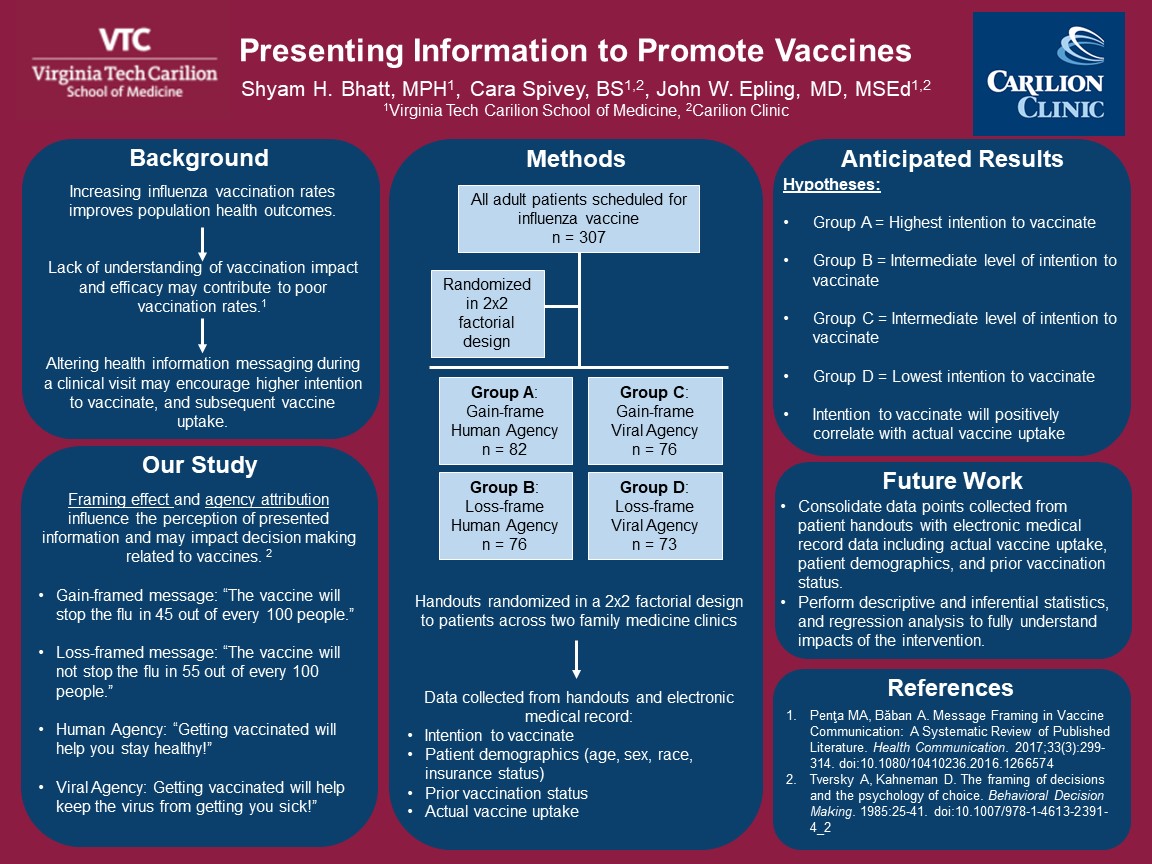SRFP080: Presenting Information to Promote Vaccines
Shyam Bhatt, MPH, MD Candidate; John Epling, MD, MSEd; Cara Spivey, MS
Abstract
Objective: To test the impact of framing effect and agency attribution on patients’ intention to vaccinate.
Study Design: A randomized 2x2 factorial design with four experimental groups, each with a unique combination of framing and agency variables. Messaging about vaccine efficacy was presented as a gain- or loss-frame, and agency was attributed to either the patient or the virus.
Setting: Two large outpatient family medicine clinics serving urban, suburban, and rural populations.
Population Studied: All adult patients who were eligible to receive a flu vaccine during the 2020 flu season. Clinic staff were instructed to exclude pediatric patients and patients unable to consent for themselves.
Intervention: Four handouts that were identical in every way except for framing and agency variables were randomized and given to the patient. Patients indicated their decision to vaccinate on the handout, and providers had a chance to counsel the patients, if necessary, after form collection. Post-intervention chart review was conducted after four months, and data including sex, age, race, insurance, prior vaccination, and vaccine uptake during the remainder of the season was recorded.
Outcome Measures: The primary outcome measured is intention to vaccinate across all four experimental groups. Secondary outcome measures included demographic effects on intention to vaccinate and any moderation of framing effect and agency attribution.
Anticipated Results: The combination of gain-framing and human agency attribution should result in the highest intent-to-vaccinate rates, and the combination of loss-framing and viral agency should result in the lowest intent-to-vaccinate rates.
Conclusion: Gain-framed messages with agency attributed to patients should nudge patients to receive vaccinations, with differing effect sizes for various demographic groups.

John Epling
jwepling@carilionclinic.org 11/20/2021Great work on this project, Shyam!